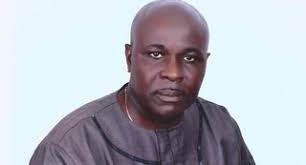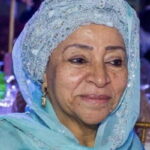
I was recently engaged by a group of young Nigerians who had just registered for my graduate class on Governance and Public Policy at a northern university where I teach. I use the word “engaged” here with some caution because the encounter was not exactly an engagement. An engagement, for me, would be an event involving two or more parties with some agreed-upon rules and a number of expected outcomes.
What we went through was essentially a noisy free-for-all with some pretensions of being an academic discussion. In retrospect, I could have pleaded some rustiness from academia and waited until the four walls of a classroom granted me some measure of authority and control at least enough to predict a fairer outcome. Now, I’m glad I submitted myself to the intense and passionate exchanges with genuine, maturing Nigerian students, most of whom were very angry with me and the administration I had just left.
I was in the midst of a large group of students who had a hundred questions, queries, and accusations. My apparent willingness to tolerate passionate, sincere questions and accusations created the context for an academic lynching by young Nigerians desperate for answers from a man who owed them explanations or at least theories.
First came the demand for my defense against the accusation that I had abandoned every value with which I had been identified when I agreed to join President Tinubu’s administration. I thought this was going to be easy. I explained that it would have been irresponsible to refuse to be part of a rebuilding process after so much damage had been done to the nation, damage I had previously criticized. Many northern voters now behave as if the Tinubu administration descended upon Nigeria from the sky and that working in or for it is a mortal sin. I expected a few heads to bow particularly when I highlighted the prominent roles of influential northern governors in pushing through a southern candidacy, many of whom anchored the successful Tinubu campaign, while others now occupy front seats in his administration. This was after a northern presidency had achieved the worst record in leadership credentials. A few heads did bow.
But they came back: How could I not have foreseen the depth of despair awaiting the country under this administration?
That wasn’t difficult. I asked those who voted for President Tinubu to raise their hands. Hands went up, reluctantly.
I fought back. This was an administration the majority of Nigerian voters preferred, so it was their choice, not mine. I reinforced this point to a crowd made up substantially of northerners and Muslims: the majority of Tinubu’s votes came from northerners and Muslims who believed that voting for him was a religious obligation. If anyone should be held responsible for Tinubu’s victory, it should be those who elevated region and religion as the prime determinants of their choices during the last election.
I was on a roll. Northerners, in particular, should take a seat. They split their votes in four directions: some to faith, some to unquestioning loyalty to outdated partisanship, some to a barren commitment to tradition, and the rest to money that could not feed a family for a day.
I could not say the North was reaping what it sowed that would have been unfair. Possibly fewer than five percent of all northerners voted for President Tinubu. But this is democracy: those who vote decide for others who do not or will not.
I braced myself for a comeback. It came with a punch: How could I have remained for so long in an administration that is so patently anti-North?
This one required some delicate handling. I played the teacher: Is it the North alone or the whole nation that is the victim of an administration which promised so much but remains stuck, struggling with problems it inherited or made worse? Why does the North feel more particularly hard done by? Where is the evidence that the North is more of a victim than the rest of the country? The uproar that greeted these questions suggested I was either being thoroughly dishonest or mischievous beyond decency. It also confirmed that no one believes the government’s abstract and routine statistics on security and the economy.
Someone suggested we move on.
Now that we are in a ditch, what is to be done? Feeling that my back was no longer firmly against the wall, I suggested that a productive path forward would be to view the administration in a national, rather than a regional, context.
There was no objection, so I reminded the class of the famous first rule for those who find themselves in a ditch: stop digging. Now I had that kind of silence you get when students sense they are about to learn something useful.
So I continued.
This administration has roughly two years to go. Nigerians aggrieved by its performance have a number of options. We could demand that it address the current state of insecurity with more vigour and imagination, or we could write it off and continue to live with killers, kidnappers, and rising levels of mutual distrust until 2027, when we will again decide on our future. If we choose to demand full-term service backed by stronger political will and a complete overhaul of our thinking and strategies around security, we must also explore how to exert more pressure on the administration to do better.
While we are at it, we can raise our voices to draw attention to the crippling cost of living, the tragic escalation in the number of desperately poor citizens, and the need to end the litany of statistics and press releases that merely reinforce the perception that this administration is out of touch with Nigeria’s realities.
I now had a fairly settled class, ready to discuss issues and not my apparent misadventure.
Well, not entirely. A spoiler’s hand went up: Why should we believe this administration can improve on its record so far? I helped out: perhaps because it wants Nigerians to vote for it again in 2027? You could hear the chorus of “no, no, no” from the next block.
I gambled. Does it befit a graduate class to argue so vehemently against the possibility of Tinubu’s re-election with two years still to go before an election? Why can’t this administration work harder to reduce Nigerians’ hostility while sharpening its traditional tools to get results? This APC administration is, in many ways, an offshoot of Buhari’s administration, despite Tinubu’s inaugural speech bravado.
This APC administration will play the regional card and insist that it must serve for eight years so that every southerner feels properly Nigerian. It is attracting defectors like flies to an open sewer, starving other parties of the strength to mount a serious challenge in 2027. It will amass even greater fortunes being in power and knowing the weight of money in deciding electoral outcomes. It will enlist mobilizers who will split or manufacture votes, just as the clergy did in 2023. It will spend hundreds of billions to induce voters who have starved for four years, voters who will collect morsels and a few hundred naira because that may be all they ever get in eight years of this democracy. It will carve up the country, deepen fault lines, and weaken the bonds needed to begin healing a nation that has paid for its democracy with its cohesion, the blood of its citizens, and the future of its youth.
This is going to be a fairly normal class. We had to conclude with an informed summary of what we had discussed. An unhappy class agreed that the North alone cannot claim victimhood under the Tinubu administration. The North alone cannot decide whether he returns or leaves in 2027. It has the right and the obligation to demand better attention and resources to address its insecurity and poverty levels. It must learn to hold its governors, ministers, and other officials accountable for fixing the North, including the imperative of exerting pressure on the federal administration to address northern challenges or risk being entirely swept away in 2027.
It was a more subdued class that marched out.
The post My Angry Class, by Jideofor Adibe appeared first on Vanguard News.










